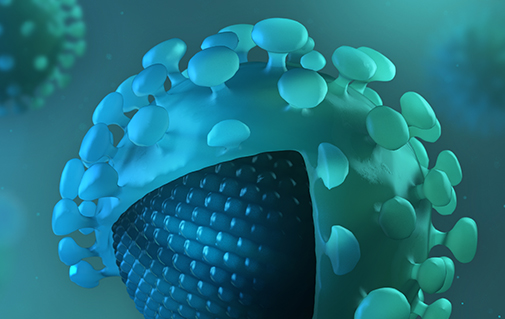News
Recoveries rise to 2,329, 549 people test positive for COVID-19

29 Apr, 2020: The UAE Government announced on Wednesday that 148 patients had fully recovered from COVID-19 after receiving the necessary medical care, bringing the total number of recoveries to 2,329.
The announcement was made during the regular media briefing held in Abu Dhabi, wherein Dr. Amna Al Dahak Al Shamsi, official spokesperson of the UAE Government, and Dr. Farida Al Hosani, official spokesperson of the UAE health sector, provided an update on coronavirus-related developments and measures taken to mitigate its impact.
Dr. Al Shamsi noted that recovered cases constitute 20 percent of all infections in the country.
''We are optimistic that with the dedication of frontline doctors and paramedics who use the most advanced methods of treatment, we will soon have more recovered patients,'' she affirmed.
She said an additional 26,195 COVID-19 tests were performed, leading to the detection of 549 new cases among various nationalities, bringing the total number of cases in the country to 11,929, including cases receiving treatment, recoveries, and deaths. 9,502 patients are still receiving treatment.
According to Dr. Al Shamsi, the rate of infection does not exceed 0.12 percent of the population of the UAE. ''We reassure the general public that we will spare no effort to address this crisis and curb the spread of the virus,'' she noted.
Dr. Al Shamsi also announced that nine people from various nationalities who tested positive for COVID-19 died due to complications, bringing the total death toll to 98. In her remarks, she offered sincere condolences to the families of the deceased.
Speaking about the long-term side effects of the virus after recovery, Dr. Farida Al Hosani, explained that some studies show COVID-19 has lasting effects on recovered patients. However, she noted, very few cases were in a critical condition and placed in intensive care.
''COVID-19 side effects could damage the lungs. Some recovered patients have experienced pulmonary dysfunction and could not perform usual activities, such as walking for long distances, and have shortness of breath,'' she said.
Dr. Al Hosani advised recovered patients to perform exercise like swimming to stimulate the cardiovascular system and adopt a healthy lifestyle by maintaining a nutritious diet and refraining from smoking.
Regarding the possibility of reinfection after recovery, Dr. Al Hosani affirmed that there were no studies on the matter, and research is ongoing.
''The UAE did not record any such case, but there were some cases in other countries because such cases may not have recovered completely or were not subject to thorough testing before leaving the hospital to ensure they were asymptomatic," she remarked.
In general, she continued, the effects of infection may vary case-by-case depending on the strength of one’s immune system and lifestyle.
Discussing minor and critical cases, Dr. Al Hosani said that the majority of cases do not exhibit symptoms, noting that some may have a slight fever, cough, or sore throat, while others could temporarily lose their sense of smell and taste.
Dr. Al Hosani explained the various stages of infection, stating, "The first stage is the incubation period, when the virus enters the cells of certain parts of the body, such as the throat, trachea, and lungs. This is the period between infection and the onset of symptoms. During this period, a person does not feel sick and may not develop any symptoms at all. The incubation period varies from person to person but ranges from one to 14 days, with an average of five days."
Following this stage, a minor illness could develop, which may be accompanied by the aforementioned symptoms that can be treated by bedrest and a high liquid intake. The patient does not need hospital care at this time, she added.
Dr. Al Hosani said that a small percentage of people develop severe symptoms, including inflammation of the lungs, shortness of breath, and breathing difficulties, adding that during this stage, some patients require medical intervention on a ventilator, especially those suffering from chronic diseases or those who are smokers or elderly, with a few developing other complications.
Dr. Al Hosani also affirmed that while many infected people may not show any symptoms and their condition will not require hospitalisation, they can spread the infection to others.
"Therefore, we constantly stress the necessity of following all preventative measures, as well as the importance of self-quarantine and wearing face masks. Although restrictions have been relaxed and we can go outside if necessary, this does not mean that we can be negligent because prevention is mandatory for every individual to protect themselves and those around them. With awareness and a commitment to responsibly following instructions, we can all succeed," she added.




 For an optimal experience please
For an optimal experience please